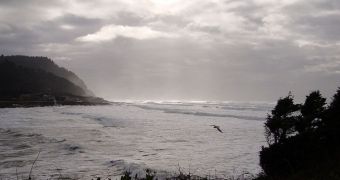A group of investigators from the United States say that water samples collected from around coal-bed natural gas production facilities is heavily polluted, and contains sodium bicarbonate at very high concentrations, which are harmful to aquatic life.
The investigation was conducted by scientists from the US Geological Survey, the Environmental Protection Agency (EPA), the Montana Fish, Wildlife and Parks, and the Bureau of Land Management.
The discovery is all the more worrying when taking into account the fact that coal-bed natural gas production rates have gone through the roof in the country over the past few years. The study the team conducted hints to a much more widespread phenomenon.
Using the conclusions of the new research as a starting point, resource managers could develop new ways of using water for beneficial purposes, such as agriculture and irrigations, while at the same time ensuring that aquatic life (another important resource) is protected as well.
Full details of the study appear in a paper entitled the “Scientific Investigations Report 2012–5008,” which can be viewed online free of charge at this link. The document was posted on June 14, 2012.
“Methane gas associated with coal deposits, once viewed as a nuisance hazard, is now being produced as a valuable resource, an important part of achieving our energy independence,” explained Marcia McNutt, who is the director of the Geological Survey.
“But new methods of energy production can also bring new risks to the environment that have not yet been evaluated or quantified,” the official adds. She explains that studies were conducted on the Tongue and Powder Rivers, in Montana and Wyoming.
“The USGS provides timely scientific information to help energy producers, resource managers, and local communities make wise choices in areas of rapidly expanding development,” McNutt explains.
Fish and other aquatic organisms were found to be threatened by excessive salt concentrations in the waters they inhabit. Salts such as sodium bicarbonate can severely reduce fish population, contributing to food insecurity in the US and abroad.

 14 DAY TRIAL //
14 DAY TRIAL //